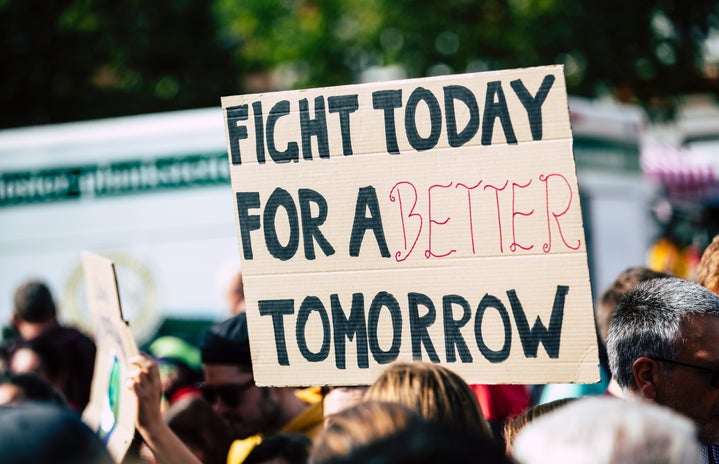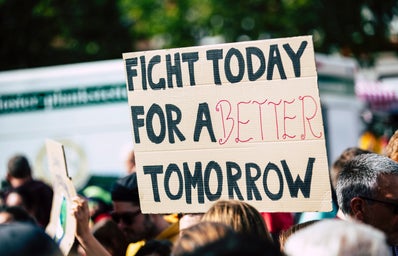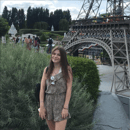Gillian Burke is a biologist, presenter and public speaker, best known for her role as co-presenter of BBC Springwatch and its spinoffs.
Burke spent her early years in Kenya, near Nairobi, having a ‘very outdoors existence’ before moving to Vienna for her mother’s job with the UN aged 10. While waiting for a place at the international school her elder brother went to, she experienced intense loneliness for the first time. Her outgoing, extroverted personality lead her to chose to study away from home in the UK, at none other than Bristol University. She would walk past the BBC Natural History department everyday on her way to lectures, thinking, I’d love to work there, but never thought it was something she could actually do. Burke describes how she had to sleep on friends’ sofas to make ends meet as an intern; she has worked hard to get to her prime-time TV presenting role.
Gillian Burke speaking about hope at the Hawkwood Centre for Future Thinking in 2019.
As a black woman in the media, she has faced racist backlash, with the Sun and the Daily Mail writing articles saying she ‘ousted’ Martin Hughes-Games, a white male presenter, from his position in Springwatch, simply in the name of diversity. This is not only untrue, but also completely ignores Burke’s years of experience as a producer and voice-over artist for countless natural history programmes. Burke stated later in an interview with the Radio Times that she was ‘horrified’ by the claims that she ‘broke up’ the group of presenters, but never showed the immense upset she felt privately. She responded to the claims gracefully and graciously: ‘I can totally understand why people would want to know where I’ve come from, the perception is that I’ve just shown up. But I’ve been doing this a long time. My first job in natural history was in the mid-late 90s and I’ve worked pretty solidly in it ever since.’
What I find most inspiring is that she refuses to identify with one single part of her identity, accepting her position as someone with many different roles. She talks openly about her complex relationship with identity as a Kenyan-creole living in Cornwall. Perhaps most importantly, she is a mother and a storyteller, and refuses to let scientific rigour and precision prevent her from telling stories. She is open about the influence of her creole heritage which means she is quite superstitious, and yet she is able to pursue scientific work because she doesn’t let the binary between science and arts phase her. As someone who personally found the A level structure quite restrictive I admire this; only studying 3 or 4 subjects, means we often feel the need to make a choice between Sciences or Arts.
She speaks out about climate change, her experience of climate grief and how she’s been able to find hope in what can feel an extremely bleak cause. Remaining an optimist in her climate activism allows her to be a positive influence for change, as she shares her hopefulness with others and proves how we can all make a difference. She shares stories of conservation successes and how behaviour change, hope and action can help these causes. Presenting from RSPB’s Old Moor reserve in Yorkshire, Gillian spoke about the post-industrial wasteland that was left after the mining industries closed down there in the 1980s. It is now a beautiful, thriving reserve which, with some human intervention, has been reclaimed by nature. In sharing these stories, Burke spreads hope for the future of our climate.
Gillian Burke discussing the importance of nature and community during lockdown.
Burke also speaks about how ‘environmental justice and social justice are two sides of the same coin’. Her activism, showing how nature and storytelling are open to everyone, is inspiring. She got in to TV because of her passion for the environmental justice cause, and is continuing to make an impact today with her voice-over work, public speaking and presenting.
This article is part of a themed content week celebrating International Women’s Day and women who inspire us.



